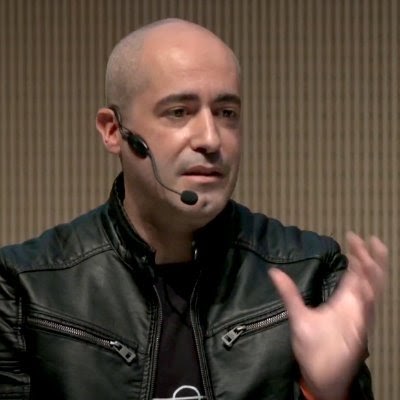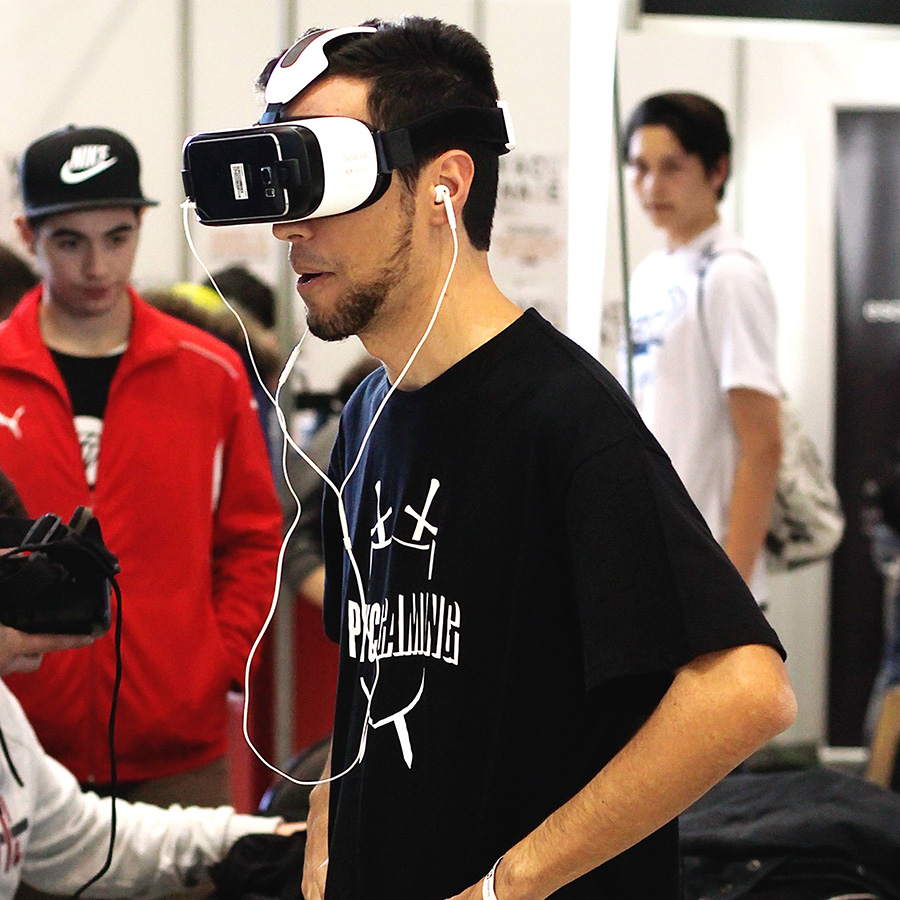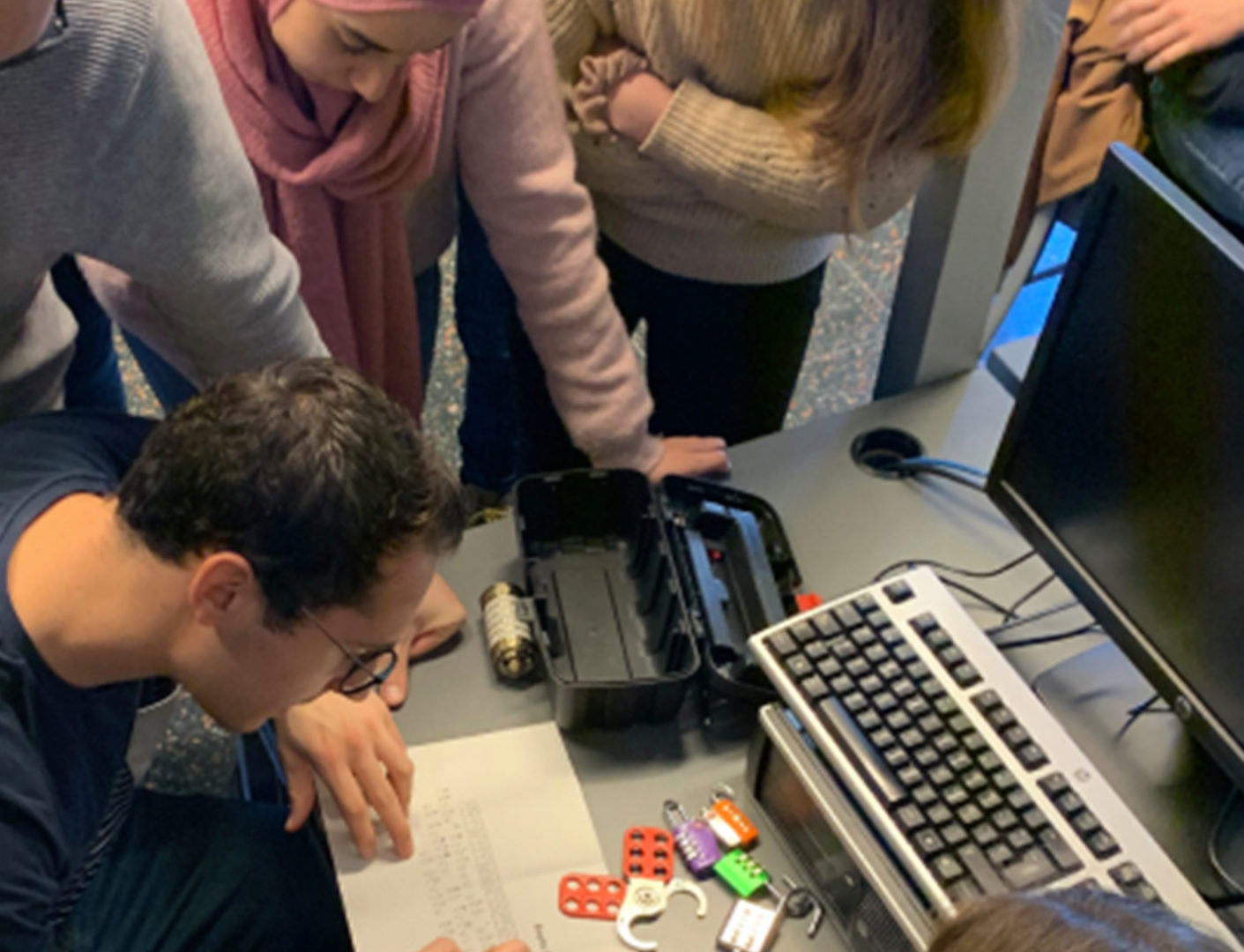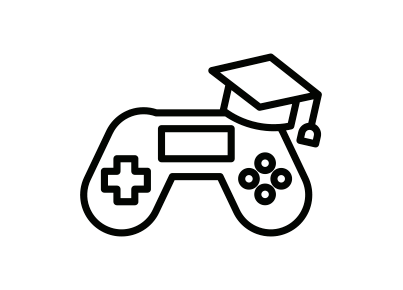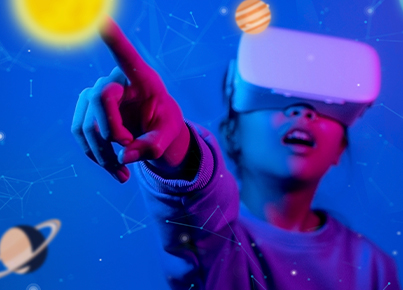Educated, gamified, and hacked without knowing thanks to video games?
Educated, gamified, and hacked without knowing thanks to video games?
What if there existed a massively consumed tool with a high capacity to transform the way we relate to our environment, granting us a number of key advantages and abilities for current times?
To answer that question I wrote the book Homo Aliens. Videojuegos y Gamificación para el Próximo Hacking Cognitivo -published by Héroes de Papel- right at the beginning of the COVID19 epidemic, which delayed its release in bookstores until September of 2020. In the book I delve into key issues of how the different human societies have related to playing games, why playing has had its own peculiarities in each stage and context, or why at some specific point of history, playing was practically eliminated from our lives in a process I call “gamicide” or “ludicide”.
In Homo Alien I also try to share certain ideas, doubts, and questions we should ask ourselves to think and feel playing not only as a hobby but also as the tool that any living being with a complex central nervous system (some reptiles, birds, and of course, mammals) inevitably needs if they expect such a system to fully develop. As Homo sapiens, we have developed a very complex culture of learning, and playing games is for us the main tool to learn. I’d like to emphasize the word “learn” here, since every game can be used to learn, which doesn’t mean that every game can be used to teach, i.e. to teach under a curricular perspective of formal education. For that reason, I also explain why most of the Serious Games don’t “work”, neither as games nor as educational tools.
What does seem to be evident is that games and, more specifically in this digitized age, video games help us develop certain abilities or competences called skills. Games and now video games have a direct impact in the way we perceive and interact with the environment. These are crucial skills for the current historical context, where we have to deal with the digitalization of practically every communicative and productive process, with high volatility and uncertainty, as well as with the need to be creative to differ from automated work and artificial intelligences. Of course, these are not “new” concepts but they are important arguments to return to, after a context where playing was meant almost exclusively for youths and children to develop certain skills before becoming an adult, and once at a productive adult age was reached, playing was seen as a waste of time and thus of productivity. That is how we get to the previously mentioned gamicide.
Nowadays we face challenges that didn’t exist in the Industrial Age, challenges that encourage the adult population to stay within a process of Long Life Learning, where the workplace is not just a place to produce but also a place to research and learn, to improve and contribute in a creative way. Work is no longer a mechanical activity for human beings because we already have machines and digitalization for that; so the skills that can’t be developed -at least not yet- by these machines are the most important ones in our Knowledge Society.
The Soft Skills Dilemma
In The Global Achievement Gap Prof. Thomas Wagner argues that “students are not learning the skills that matter most for the twenty-first century”, among other things because “our system of public education—our curricula, teaching methods, and the tests we require students to take—were created in a different century for the needs of another era. They are hopelessly outdated”. In his book he goes on to mention how positive it is that the education of the other skills (the technical or hard skills) has been democratized to the point that countries from the Asian and American Continents which didn’t have access to such education, do have it now and become industrial competitors with better initial conditions: lower salaries and laxer environmental regulations, among others.
A professional context of permanent innovation and uncertainty that we call Knowledge and Innovation Economy, combined with competing technically qualified profiles from emerging countries, calls for a change in education in the developed countries where other non technical skills play a crucial role. Wagner himself calls them “Survival Skills” and justifies his argument by saying that “parents and educators who do not attend to these skills are putting their children at an increased risk of not being able to get and keep a good job, grow as learners, or make positive contributions to their community”, the warning also extends to political leaders. In general, when we talk about these non technical skills, we actually refer to the still largely unknown soft skills. Practically every author and organization coincides with the need to train and assess soft skills such as Critical Thinking, Problem Solving, Collaboration, Leadership, Agility and Adaptability, Initiative and Self-motivation, etc.
Unfortunately, knowing what you need is not the same as having it. For instance, in a sample from a Gallup survey conducted for NWEA (previously known as NorthWest Evaluation Association), more than eight out of ten teachers (83 %), parents (82 %), superintendents (82 %) and principals (83 %) said it is equally important to assess academic as well as non academic skills, such as teamwork, critical thinking, and creativity; however, the teachers admitted not having enough time to train these skills, especially in those children with greater difficulties, and only 40% said that current assessment tests are useful to measure these skills, and just 10% consider that some of those skills are being measured correctly.
We therefore seem to be facing a triple problem in the Formal Education of developed countries:
- We have limited awareness of the value of soft skills.
- We roughly know how to assess them.
- We have a very vague idea of how to teach them or train them.
I can say there is limited awareness of the value of soft skills. ome experts like Prof. Wagner and organizations like the OECD, the WEF, or the European Commission itself have published reports highlighting the importance of these skills, and warning on the urgent need to train and develop them, even stating that an ever increasing percentage of hiring depends on these skills. And this warning is also limited because it isn’t correctly permeating formal educational centers, except for the Vocational Education and Training (VET) ones. At VET centers, and specifically in their entrepreurial classrooms, we do observe an ongoing movement with soft skills as protagonists, but, I insist, it is a teacher’s not a political move.
Regarding the assessment and teaching of these skills, the truth is there is little literature about it and everything suggests that those who use soft skills training and assessment methods, do it a bit analogically in the first place; and in the second place, very intuitively and excessively related to the performance of a specific task in their working environment. I want to emphasize Bruce Tulgan’s book Bridging the Soft Skills Gap where he gives a pretty shallow description of these skills and explains his peculiar way of training them: imitating those coworkers who could possess such skills and subjecting oneself to a kind of question and answer self-test so as to reflect on whether we have acquired the skills, that is, to make a self-assessment.Moreover, even though there is a certain awareness of soft skills and of how necessary they are in working environments as well as educational contexts, there isn’t a global standard nor a European one that defines the skills themselves: which ones are better t and why, and of course in which professional sectors they are more relevant. Some European agencies like the JRC and ESCO have started to work on this, but, honestly, there is still much to be done.
(Real) consequences of playing video games
In spite of the popular, though generational, thought that video games are unproductive or time-wasting, our own research as well as others’ have found out about the effects caused by the most popular leisure tool today. Unlike television or radio, video games turn users into active agents, and both the stimulation received and the context on the screen demands of players a series of behavioral as well as cognitive actions.
Thanks to current measurement tools, we have been able to find out different phenomena related to the use of video games. On the one hand, the demystification of their relation to addiction and violence. Contrary to the media’s portrayal, there isn’t any scientific evidence relating video games to an increase of violence . However, as usual, we should be aware that video gaming is a cultural artifact like any other that, when used in excess, can produce negative effects, which is why we should continue placing emphasis on controlling and monitoring gamers’ habits in the potentially vulnerable groups.
On the other hand, we have an incredible amount of evidence showing that video games are an excellent asset in relation to brain improvement and change.
To be brief, we would like to sum up such evidence into 4 categories:
Cognitive effects
Which include, among others, improvements in processes like problem solving, attention, perception, spatial skills, working memory, and reasoning speed.
Motivational effects
Related to the user’s commitment to playing; the generalized motivation for any activity involving the use of games, and the capacity of attention derived from that motivation.
Emotional effects
Or emotional management, related to the improvement of stress or frustration management.
Social effects
Including, among others, an improvement of prosocial behavior, empathy, interaction, team coordination, communication.
In order to add more arguments in favor of the beneficial neurocognitive effects that video games have on players, it is worth mentioning that a more specific line of research has, in the past decade, been relating the use of video games to the improvement of the soft skills mentioned at the beginning of the article. Though some of these skills have already been mentioned in previous categories, the ones that stand out are: the relation of video game playing to a better communication, cognitive adaptability or flexibility, creativity, complex problem solving and organization, leadership, etc.
Video games in the classroom: does it make sense?
As may be observed, video games have become a tool of cognitive stimulation in many senses. This sounds logical, since there is also a great amount of types of video games closely related to every cognitive area we normally use. In this way, research has been unraveling the truth behind the influence of video games. Even certain educational figures have applied video games in the classroom, taking into account the previous information and other studies that showed an improvement of learning skills thanks to the use of video games.
For example, video games have been used in different educational institutions to support the learning of STEMcourses, taking advantage of the effects of Flow created in the students or increasing their motivation for learning and improving classroom interaction.
To be precise and more down to earth, and to portray the scenario of the video games’ role in the classroom, they have been applied to different courses such as Mathematics, using the algorithmic-numerical system that underlies the design and programing of each video game, as well as Language, using above all games with a high narrative load. Furthermore, video games have been used to teach History to foster the learning of mythology or historical events, and of course, for Science courses, though all the studies highlight the importance of the teacher as a moderator in class.
VERSA Project. Video games and soft skills for PhD students.
With this bibliographic information and the research projects, our foundation, Gecon.es, began an international project of educational innovation in 2021. The project, called VERSA (Video games for Skills training), financed by the program Horizon 2020 Science with & for Society Call (SwafS-2020 Topic 8), has the goal of fostering entrepreneurship-related soft skills in PhD students from the AURORA European universities network.
In order to do this, we designed a specific module structure for each soft skill related to the use of a particular video game, supported by the use of certain standard tests so as to be able to have a procedure of external measurement. The project’s main hypothesis is that, as stated before, the use of video games will improve the level of soft skills in students participating in the project.
With more than 80 students per module, all the results aim at a significant relation to the improvement of the first five soft skills that have already been trained (there are still as many to be started). The skills are: Cognitive Flexibility, Creativity, Critical Thinking, and Teamwork. Therefore, and once more, the evidence suggests that video games may mean a very valuable support in educational contexts, not only to improve specific skills but also to improve commitment, motivation, and students’ participation in the development of such skills.
The next step, once the project is finished, is to develop the model in order to continue its practice in the educational context and even extend it to the working context, so as to get into the field of professional training in working environments – what is called re-skilling. Thanks to this know-how, we have become increasingly more capable of creating specific programs to develop key soft skills in educational, training, and professional contexts, which allows us more and more to build bridges to close the competence gap between the academic and working fields, by specializing professional profiles thanks to, among other things, video games and also by using the motivating power of playful contexts that such video games create.

